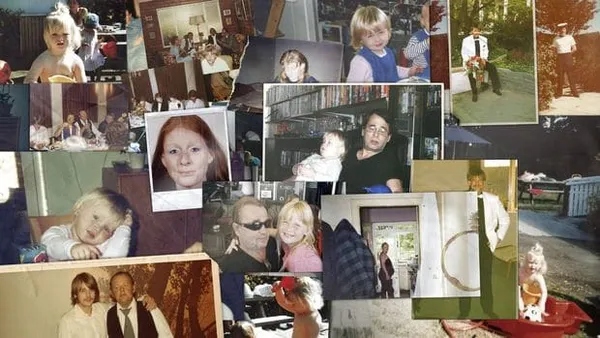Eye For Film >> Movies >> Dreaming Of A Family (2013) Film Review
Dreaming Of A Family
Reviewed by: Michael Pattison

Mira Jargil’s touching documentary Dreaming Of A Family follows Per, a middle-aged recovering alcoholic and former hash addict who attends a family counselling class for single fathers. Per reveals to the group, led by social services worker Torben, that he and his former partner Christina — also a recovering alcoholic — are getting back together. When their daughter Ilse was 14 months old, the couple decided to have her taken into foster care. Ilse, now eight, visits her father at weekends, and is about to meet Christina for the first time. With both Torben’s professional guidance and the support of his fellow counselees, Per must decide when and how to introduce Ilse to her mother — and eventually, how and when to reveal the reasons behind her fostering.
In the opening scene, Torben hands out digital cameras to his class, telling them to film themselves at home whenever they feel they feel they are being fatherly. Jargil intersperses Per’s home footage with her own observations. The double-camera process is in the first instance metaphorical, lending Per a self-consciousness and agency with which to assume responsibility for his daughter and the relationship he has with her. It is in the second instance practical: though the filmmaker isn’t present when Per picks Ilse up from school — with Christina waiting nearby as a surprise — Per’s own diaristic footage stands in.

Early on, Per’s eagerness to resume life as a functional nuclear family is evident. Christina’s introduction goes against the agreement the two parents made with Torben — the latter’s concern is primarily for the young child, whose age requires much tact when it comes to a change as massive as the introduction of a parent she has never known.
Ilse’s reaction is understandably mixed. Initially delighted with Christina’s presence, a dormant confusion, we learn, is expressed at school. “All the reactions came tumbling out of her,” Per reports to his support group. In addition, Torben reports that Ilse’s caseworker has informed him that the child is suffering from bellyaches as a result of having two mothers. The crux of the matter is Ilse’s sudden and traumatic puzzlement regarding her biological mother’s eight-year absence. How are Per and Christina to explain it?
Jargil’s film is a clear account of two adults learning to confront their own guilt. For Christina, the resumption of a mother-daughter relationship cannot happen fast enough, and the elder has trouble understanding the younger female’s need for adjustment (as one of Per’s fellow counselees remarks, “it sounds like you have two daughters”). Per, meanwhile, is visibly bothered by the prospect of facing up to his responsibilities, deferring action even when, as Torben warns, Ilse expresses a need to be told her parents’ history through mood swings and self-imposed isolation.
There are no easy answers. While Christina appears to retreat back to the safer confines of a relationship with her ex-boyfriend, Per is finally propelled into action by an increasing number of blood clots in his legs. There’s something very moving about adults embarking upon the belatedly tumultuous terrain of what is essentially a dormant adolescence: when Per accompanies Christina to collect her belongings (including old photos with which to make a family history book for Ilse) from her ex-boyfriend’s home, the mutual empathy is laced both with a three-way heartbreak and an amusing pettiness on Per’s part, as he casually boasts about having more than 3,000 films on video to the man he is ostensibly usurping.
What’s clear is that Per and Christina’s decades-long substance abuse has, we gather, resulted in a prolonged state of mental puberty — one whose intergenerational effects are palpable but, crucially, not irredeemable.
Reviewed on: 24 Mar 2014
















